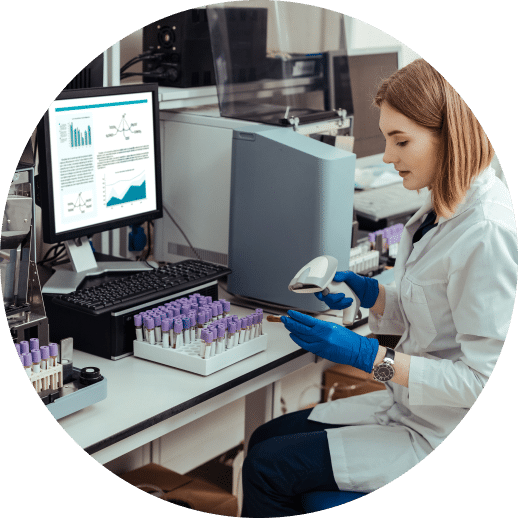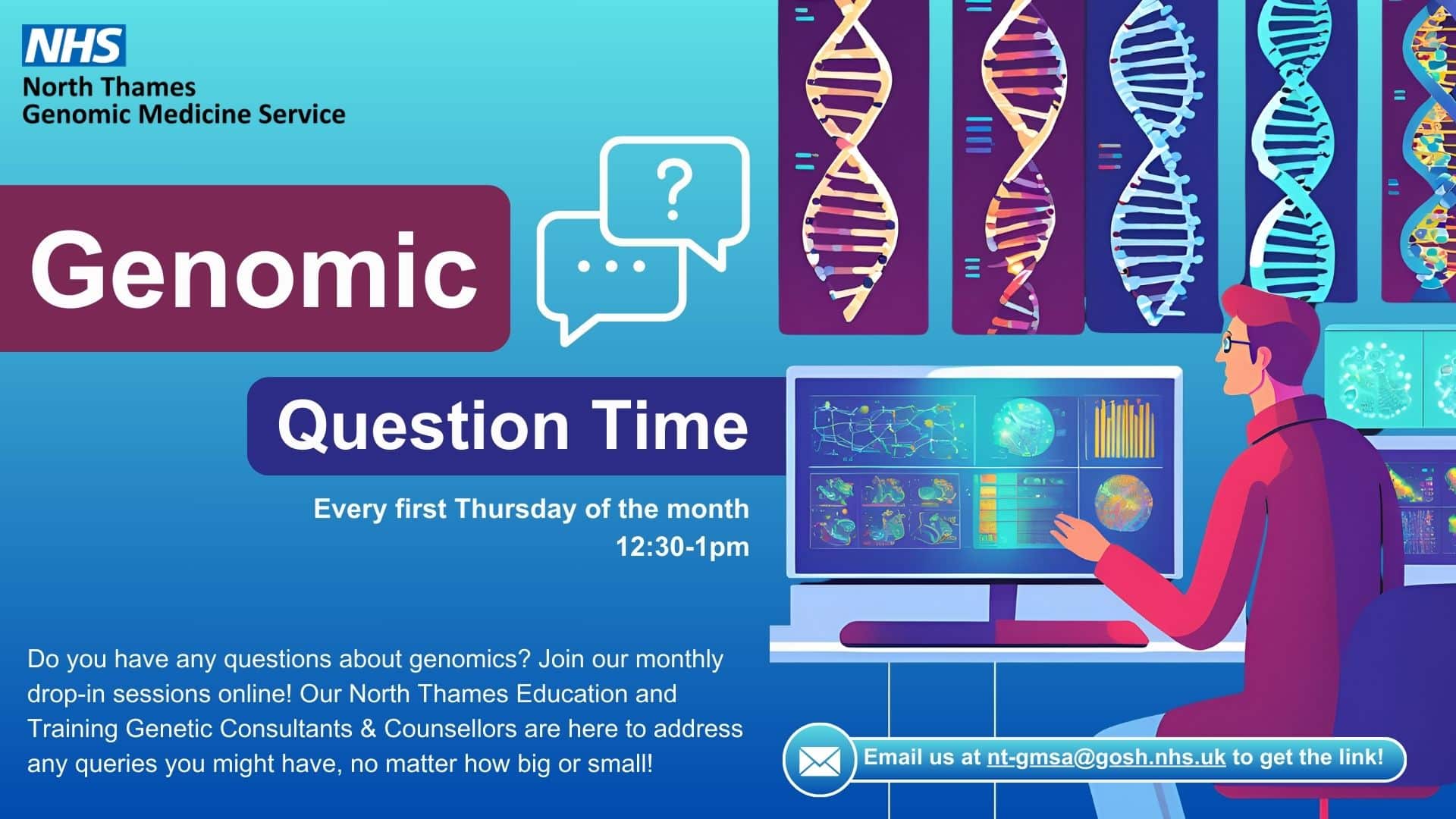The pilot in depth
In the current clinical pathway for lung cancer diagnosis biopsies are used to confirm a diagnosis and histopathology samples can be sent for genomic testing. However, results from these tests can take several weeks to be returned, long after the biopsy confirms a cancer diagnosis, during which time patients’ health may get markedly worse. This means patients are often immediately put onto standard chemotherapy treatments as soon as the biopsy confirms diagnosis, even if targeted treatments could be available.
As part of this pilot study, ctDNA testing is run alongside the standard diagnostic pathway. When patients with suspected stage 3/4 lung cancer first see a hospital doctor with the results of their scan and even before they have biopsies taken, they are also offered ctDNA testing. In this new pathway, the pilot teams aim to turn around the ctDNA testing within 14 days of receiving samples in the lab. This means key genetic mutations in the cancer can be identified much faster and those patients can access treatments earlier, sometimes even before the biopsy has been taken.
Those targeted treatments can significantly improve quality of life for patients, improving survival and reducing side effects.
Dr Michael Hubank, Scientific Lead for the North Thames Genomics Laboratory Hub and Joint Head of Clinical Genomics (Research) at the Royal Marsden NHS Foundation Trust said: “For many years research has highlighted the power liquid biopsies, like ctDNA, can have in cancer care and so it is fantastic to see that, through the Genomic Medicine Service, we can begin to integrate them into standard clinical pathways. Advanced genomics testing like this, brings us a step closer to providing precision medicine to patients in the NHS.”
Over 2000 patients with suspected lung cancer have had a ctDNA test over the first two phases of the pilot. The programme has just moved into phase three which aims to provide the test for 10,000 new patients up to March 2025.
Testing in phase one was carried out by commercial partners Roche and Guardant Health who have developed liquid biopsy technology. The Royal Marsden has successfully worked with Guardant Health to move the technology into their laboratory to be able to deliver the testing in phase two and three within an NHS setting via the Marsden360 test.






